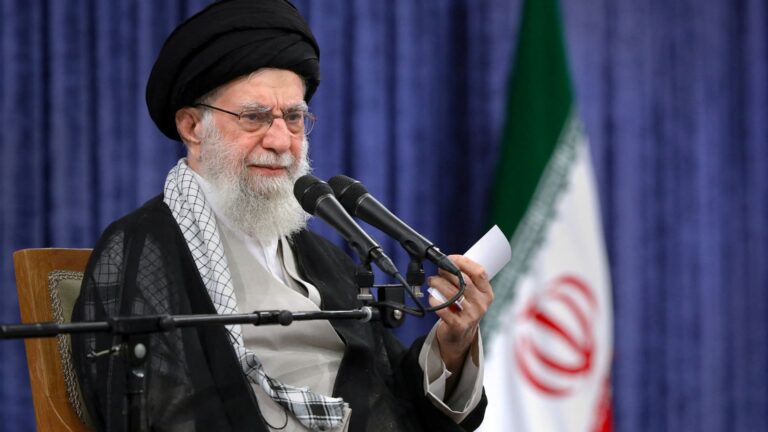Iran’s Supreme Leader Ayatollah Ali Khamenei speaks during a meeting in Tehran, Iran, May 20, 2025. Office of the Iranian Supreme Leader.
Office Of The Iranian Supreme Le | Via Reuters
Crude futures jumped more than $5 per barrel on Friday morning after Israel launched airstrikes against Iran without U.S. support, drawing concerns over the supply outlook from the oil-rich Middle East region.
Global benchmark Brent futures with August delivery rose 7% to $74.28 per barrel at 09:56 a.m. London time, up more than $5 per barrel for the session. The U.S. West Texas Intermediate contract with July expiry was last up 7.4% at $73.02 per barrel.
Israel launched a “targeted military operation” against Iran’s nuclear and ballistic missile program, Israel Prime Minister Benjamin Netanyahu said in an address. Israel hit Iran’s main enrichment site at Natanz, its leading nuclear scientists, and struck the heart of its ballistic missile program, Netanyahu said.
“This operation will continue for as many days as it takes to remove this threat,” Netanyahu said.
The International Atomic Energy Agency said no increase in radiation levels was observed at the Natanz site following the attack as of Friday morning, while the Isfahan nuclear site was not impacted.
U.S. Secretary of State Marco Rubio made clear that Israel had taken “unilateral action against Iran” without U.S. support. Rubio warned Iran against targeting U.S. interests.
“We are not involved in strikes against Iran and our top priority is protecting American forces in the region,” Rubio said in a statement. “Israel advised us that they believe this action was necessary for its self-defense.”

Oil prices year-to-date
Israel’s Defense Minister Israel Katz declared a special state of emergency in Israel in anticipation of Iran launching a missile and drone attack in retaliation.
Iranian state media also reported that Hossein Salami, commander-in-chief of Iran’s Revolutionary Guards Corps [IRGC], was killed in the strikes.
At risk for oil markets is supply from both Tehran and other regional players that could be drawn into the conflict. Iranian production stood at 3.305 million barrels per day in April, according to OPEC’s Monthly Oil Market Report of May, which compiled the assessments of independent analyst sources.
Oil investors are now concerned that Iran will retaliate by attacking either Israeli or American targets, leading to a major military escalation and a potential oil supply disruption, said Andy Lipow, president of Lipow Oil Associates.
I don’t think we’re looking at anything as severe as when Russia invaded Ukraine. It’s just not that significant a threat to oil supplies.
Ellen Wald
co-founder of Washington Ivy Advisors
“Iran knows full well that President Donald Trump is focused on lower energy prices,” Lipow told CNBC, adding that actions by Iran affecting Middle Eastern oil supplies and consequently raising gasoline and diesel prices for Americans are politically damaging…
Read More: Oil prices surge after Israel launches airstrikes against Iran



